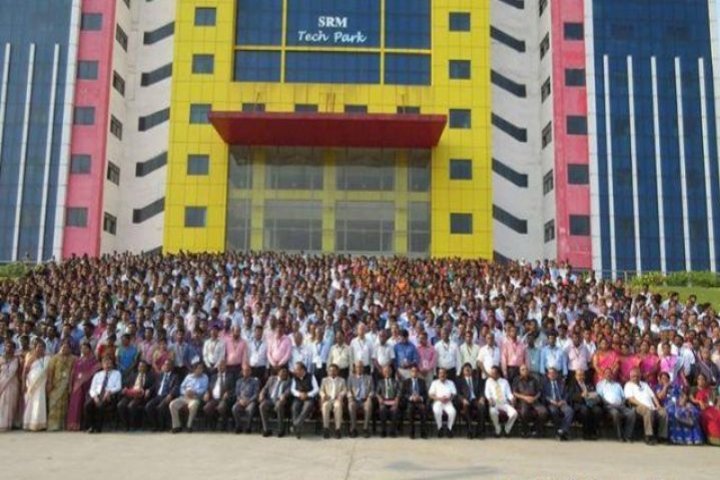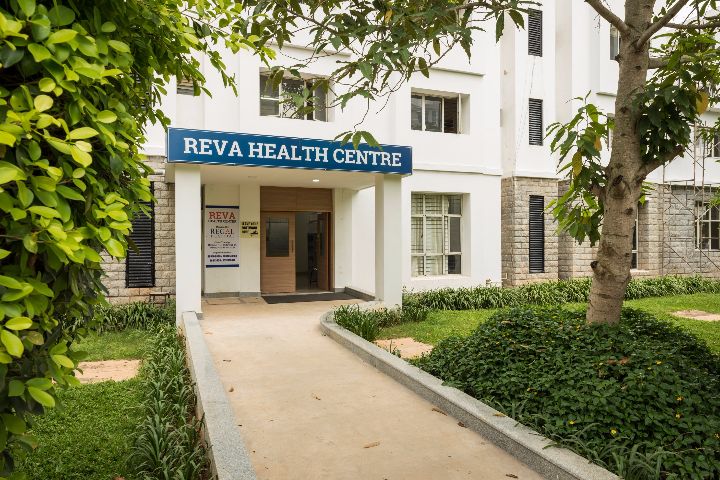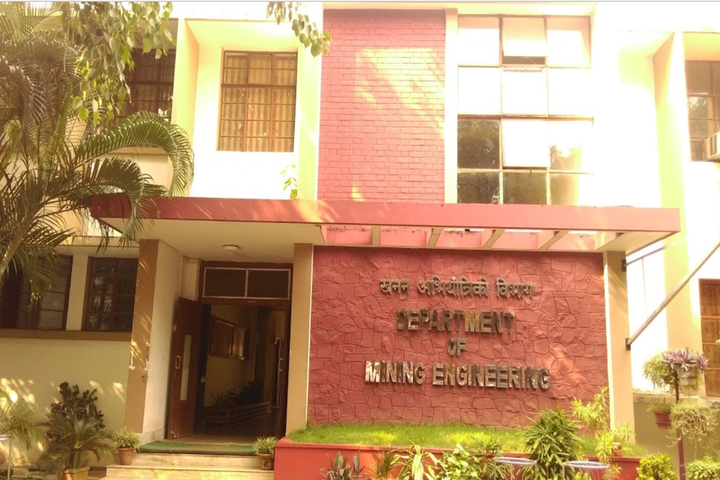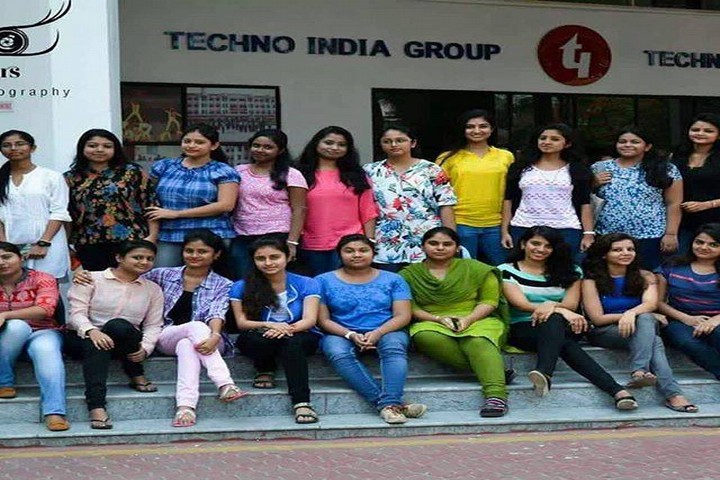
Agricultural Engineering Course Details - Fees, Subjects, Syllabus, Duration, Eligibility, Career Scope
Degrees offered: B.E /B.Tech, Diploma, M.E /M.Tech., Ph.D, BS
What is Agricultural Engineering
Agricultural engineering is one of the sub-fields of engineering. It combines principles from different disciplines of engineering to address agricultural issues. Students learn about the agricultural system and its relationship with technology. More than 350 colleges in the country provide event management courses.
Agricultural Engineering combines various disciplines such as Mechanical, and Civil. Electrical, food science, and environmental. There are various courses available in the field of Agricultural Engineering such as B.Tech, B.E., and M.Tech. The course focuses on the sustainability of natural and renewable resources.
Highlights- Agricultural Engineering
Particulars | Values |
Degree Name | Agricultural Engineering |
Degree Type | B.E/B.Tech, M.E/M.Tech |
Degree Duration | UG: Four years PG: Two Years |
Entrance Exams | UG: JEE Main, UPCET, CUET UG PG: GATE, CUET PG |
Eligibility Criteria | UG: 10+2 PG: Bachelor’s degree |
Admission process | Entrance Exam / Direct Admission |
Average Course Fees | Rs. 78,890 to Rs. 5.25 Lakhs |
Average Salary | Rs. 2.9 LPA (Agricultural Engineer) |
Job Profiles | Agricultural Scientist, Agricultural Engineer, Agronomist, Agricultural Sales Manager, Survey Researcher |
Top Recruiters | ITC Limited, Nestle, Parle, Amul Dairy, Britannia, AgroTech Food, Pradan |
Top Private Agricultural Engineering Colleges in India with Fees
Private institutes are comparatively more expensive than public institutes. Candidates must fulfil the requirements of the desired institute to be eligible to apply for admissions. In the table below we have mentioned the top private Agricultural Engineering colleges in India.
Colleges | Fees |
- | |
- | |
- | |
Rs. 3.2 Lakhs | |
- | |
Rs. 3.68 Lakhs | |
Rs. 4.4 Lakhs | |
Rs. 2.2 Lakhs | |
Rs. 2.01 Lakhs |
Top Government Agricultural Engineering Colleges in India with Fees
Studying at a public university is comparatively less expensive than at a private university. They offer good infrastructure and high-quality education. In the table below, we have mentioned the top government colleges in India.
Colleges | Fees |
Rs. 4.64 Lakhs | |
Rs. 1.89 Lakhs | |
- | |
- | |
Rs. 3.2 Lakhs | |
Rs. 1.63 Lakhs | |
- | |
Rs. 6.00 Lakhs | |
- | |
Rs. 4,050 |
Eligibility Criteria (UG & PG) of Agricultural Engineering
For every course, there are certain eligibility criteria that the candidate has to meet to be eligible for the respective course. To get admitted to the college of their choice, students must complete certain basic requirements. The following are the requirements for enrolling in an Agricultural Engineering programme.
Eligibility Criteria for UG Courses
Candidates who seek to get admission in Agricultural Engineering courses at any university must fulfil certain eligibility criteria. This will help them to qualify for the university’s merit list. While these criteria may vary in certain aspects from university to university, the basic common points include:
- Candidates must have passed their 12th in science stream with compulsory subjects like Physics, Chemistry and Maths/Biology.
- They must score a minimum aggregate score of 50 per cent marks.
- Students must also appear for the entrance examination to apply for the B.Tech Agricultural Engineering course.
Top Entrance Exams for UG Courses
Aspiring candidates must take an entrance exam as the initial step in their journey to start the programme. Qualifying for this exam is crucial, as it determines their eligibility to enrol in the desired course. Success in the entrance exam paves the way for admission into reputable institutions.
Exam Name | Level | Conducting Body | Exam Schedule |
National | NTA | ||
National | NTA |
Eligibility Criteria for PG Courses
Students who meet the requirements can pursue a Master's degree in Agricultural Engineering at the postgraduate level if they want to continue studying in the discipline. Students who aspire to pursue a postgraduate course in Agricultural Engineering need to fulfil certain eligibility criteria. These requirements can be found on the official website of the respective college.
- Candidates need to have a Bachelor’s degree in Agricultural Engineering or a related discipline from a recognised institute.
- They must also score 60 per cent aggregate score to be eligible for admission.
- Students must also appear and meet the cut-off of the GATE examination, which is a popular postgraduate engineering examination in India.
Top Entrance Exams for PG Courses
Admission to postgraduate courses in Agricultural Engineering relies on entrance exam scores. These exams assess candidates' aptitude in relevant fields and play a crucial role in determining admission to esteemed institutions offering specialised programmes. Details regarding these exams are furnished in the table below:
Exam Name | Level | Conducting Body | Exam Schedule |
National | NTA | ||
National | IITs |
College Predictors VIEW ALL
Scope of Agricultural Engineering in India and Abroad
Advancements in technology have changed every field today, and agriculture is no exception. Agriculture and its allied industries play a very important role in the economic sector of India. To bring about development and technological advancement in the agricultural sector of India, agricultural engineers are in high demand.
The government has been paying a lot of attention to bringing the agricultural system of India to a global level, and this cannot be fulfilled without the contribution of agricultural engineering graduates. New agricultural designs, methods and equipment have been emerging at domestic and international levels.
Course Fees Agricultural Engineering
| Minimum Fees | Maximum Fees | |||
|---|---|---|---|---|
| Private | Government | Private | Government | |
| UG | ||||
| PG | ||||
| DOCTORAL | ||||
| DIPLOMA | ||||
Course Subjects
In this section, we will discuss the Agricultural Engineering syllabus of UG and PG level degrees. The syllabus can be found on the official website of the colleges or the programme brochure of the preferred institute.
Agricultural Engineering Syllabus for UG Courses
The syllabus of Agricultural Engineering undergraduate is structured over four years and consists of both electives and core courses. The course curriculum combines both practical and theoretical knowledge of the field. Mentioned in the table below is the syllabus of Uttar Banga Krishi Viswavidyalaya for their B.Tech Agricultural Engineering course.
Semester 1 | |
Engineering Mathematics - I | Engineering Physics |
Engineering Chemistry | Workshop Practice |
Surveying and Levelling | Engineering Drawing |
Environmental Science | Electrical Circuits |
English and Communication Skills | - |
Semester 2 | |
Engineering Mathematics – II | Computers Programming and Data Structures |
Applied Electronics and Instrumentation | Agriculture for Engineers |
Workshop Technology | Thermodynamics and Heat Engines |
Field operation and Maintenance of Tractors and Farm Machinery-I | Engineering Mechanics |
Semester 3 | |
Engineering Properties of Biological Materials and Food Quality | Soil Mechanics |
Soil and Water Conservation Engineering | Farm Machinery and Equipment – I |
Farm Power | Watershed Hydrology |
Engineering Mathematics - III | Agribusiness Management and Trade |
Semester 4 | |
Farm Machinery and Equipment – II | Irrigation Engineering |
Crop Process Engineering | Fluid Mechanics |
Theory of Machines | Heat and Mass Transfer |
Field Operation and Maintenance of Tractors and Farm Machinery – II | Advanced Computer Science and Engineering |
Fundamentals of Probability and Statistics | - |
Semester 5 | |
Machine Drawing and Computer Graphics | Machine Design |
Dairy and Food Engineering | Tractor Systems and Controls |
Electrical M/C’s and Power Utilisation | Database Management and Internet Applications |
Strength of Materials | Ground Water, Wells and Pumps |
Semester 6 | |
Agricultural Structures and Environmental Control | Drying and Storage Engineering |
Design of Structures | Drainage Engineering |
Soil and Water Conservation Structures | Refrigeration and Air conditioning |
Entrepreneurship Development | Renewable Energy Sources |
Semester 7 | |
Project - I | In Plant/Industrial Training-I |
Semester 8 | |
Project - Ii | In Plant/Industrial Training-I |
Agricultural Engineering Syllabus for PG Courses
The postgraduate course in the field of Agricultural Engineering introduces the students to advanced topics in the Agricultural and Technology domain. Students learn in-depth about the same, in the table below we have mentioned the M.Tech Agricultural Engineering syllabus.
Semester 1 | |
Design and Testing of Farm Power Systems | Soil Dynamics in Tillage and Traction |
Programme Elective – I | Programme Elective - II |
Research Methodology & IPR | Audit Course - 1 |
Farm Power Design and Testing | Soil Dynamics Lab |
Semester 2 | |
Design and Testing of Farm Machinery Systems | Recent Advances in Farm Machinery and Power Engineering |
Programme Elective - III | Programme Elective – IV |
Audit Course - 2 | Farm Machinery Design and Testing Lab |
Advanced Farm Machinery and Power Lab | Mini Project |
Semester 3 | |
Programme Elective – V | Open elective |
Dissertation Phase - I | - |
Semester 4 | |
Dissertation Phase - II | - |
Careers in Agricultural Engineering
With the rapid integration of technology and the adoption of environmentally friendly practices, agricultural engineering promises excellent career opportunities. The demand for agricultural produce is on a steady rise with an increase in the national population. Candidates can explore job opportunities in government departments, PSU and private companies after pursuing a professional degree in agricultural engineering.
Job Profile | Job Description |
Agriculture Officers are professionals who are responsible for ensuring that agricultural activities are according to the state and centre's regulations. It includes conducting field inspections, advising on pest control methods, and promoting the latest agricultural technologies. | |
Production Manager | A Production manager makes sure that agricultural products are produced on time at low costs and are of high quality. He or she also coordinates teams and implements strategies to optimise production quality and reduce costs. |
Farm Managers are professionals who ensure that production processes in a farm are done perfectly. They implement sustainable agricultural practices and manage farm staff for optimal productivity. | |
An agricultural inspector checks the quality of the crops and makes sure that the products meet health standards. He or she conducts inspections to verify compliance with government regulations and standards. | |
Agronomist | An agronomist has to research and work on soil management and the production of crops. He provides advice on the best farming techniques to maximise yield and maintain environmental health. |
Agricultural Project Engineers are professionals who work on a variety of projects like the establishment of a farm; implementation of soil conservation methods and so on. They also design and oversee the implementation of sustainable farming systems and technologies. |
Upcoming trends
Agricultural Engineering, a vital branch of engineering, is witnessing a rapid transformation with the advent of new technologies. This field, which traditionally focused on improving agricultural productivity and farming methods, is now embracing cutting-edge technologies. These advancements are not only enhancing efficiency and productivity but also paving the way for sustainable eco-friendly practices.
- Internet of Things (IoT)
- Agri Drones
- Artificial Intelligence (AI)
- Big Data and Analytics
- Indoor Farming and Soil Less Agriculture
- High-Efficiency Irrigation Systems
Job Profiles and Top Recruiters
After completing the agricultural engineering program in college, one can find career opportunities in various avenues like agriculture-based industries, colleges and universities, training schools and programs, research centres, management, environmentalists and many more. Many of the recruitments are done through placement cells in various colleges. Mentioned below are some of the top recruiters in the Agricultural Engineering field.
Top Recruiters:
- ITC Limited
- Nestle
- Parle
- Amul Dairy
- Britannia
- Proagro Seeds
- AgroTech Food
- Farming Industry Consultants
- Pradan
Average Salary
There are many career opportunities in the field of Agricultural Engineering such as Agronomist, Agricultural Engineer, and Survey Researcher. The salaries can vary depending on the location of the company, the job profile applied by the candidate, and the skills and experience of the student. Mentioned below are the salaries in the same field.
Job Profiles | Average Salary |
Agricultural Scientist | Rs. 7.8 LPA |
Agricultural Engineer | Rs. 3.00 LPA |
Agronomist | Rs. 5.00 LPA |
Agricultural Sales Managers | Rs. 2.8 Lakhs |
Source: Ambition Box
Note- The salary figures mentioned anywhere in this article are just for reference purposes. Please treat them as such. Actual salaries may vary depending on respective candidates, employer, job location, and numerous other factors.
Required Skillset for Agricultural Engineering
Agricultural Engineering deals with the development of the infrastructure to support the growth and advancement of the agricultural sector. It ranges from machinery to infrastructure. The course requires students to be resourceful, imaginative, and motivated. Some of the relevant skills include:
- Problem-solving skills
- Mathematical skills
- Time Management
- Communication skills
- People Management
- Quick in Visualizing
Popular Agricultural Engineering Entrance Exams in India
JEE Main
Exam Date: 02 Apr, 2025 - 08 Apr, 2025
JEE Advanced
Application Process: 07 Apr, 2025 - 02 May, 2025
COMEDK UGET
Exam Date: 10 May, 2025
GPAT
Application Process: 01 Apr, 2025 - 21 Apr, 2025
Frequently Asked Questions (FAQs)
Question: What are the career prospects after completing the course?
Answer :
Graduates can pursue various careers such as agricultural engineer, irrigation engineer, soil and water conservationist, farm equipment designer, food processing engineer, environmental consultant, and more.
Question: Are there any prerequisites for enrolling in the course?
Answer :
Prerequisites vary by institution, but generally, a background in science subjects such as mathematics, physics, and chemistry is required. Some institutions may also require specific entrance exams or prior coursework in related fields.
Question: What is the duration of the Agricultural Engineering course?
Answer :
The duration of the course typically ranges from three to four years for a bachelor's degree. Master's programs usually take one to two years, and doctoral programs can take three to five years to complete.
Question: Is the course available online or in person?
Answer :
The course is primarily offered in person due to the practical and lab-based components. However, some institutions may offer hybrid or online options for certain parts of the curriculum, especially theoretical modules.
Question: What does the Agricultural Engineering course cover?
Answer :
The course covers a range of topics including soil and water conservation, agricultural machinery, irrigation systems, food processing, agricultural structures, renewable energy, and environmental sustainability in agriculture.
Questions related to Agricultural Engineering
How admition in b pharma How to admition in b.sc ag
hi ,
B.pharm is a 4 year graduate program and the admission in this can be based on merit or entrance exams depended upon states and universities ,
here is the eligibility criteria for B.pharm -
- Must have passed Class 12 with Physics, Chemistry, and Biology/Mathematics .
- Some universities may require English as a compulsory subject .
- Minimum marks required: 45-50% (varies by category and state).
here are the admission method for the B.pharma course .
-
Entrance Exams (State/National Level):
- GPAT (Graduate Pharmacy Aptitude Test)
- WBJEE (West Bengal Joint Entrance Exam – Pharmacy)
- KCET (Karnataka Common Entrance Test)
- MHT CET (Maharashtra Common Entrance Test)
- Other state-wise entrance exams (e.g., UPSEE, AP EAMCET, TS EAMCET)
-
Direct Admission (Merit-Based):
- Some private universities offer direct admission based on Class 12 marks .
- Examples: Manipal University, Amity University, Lovely Professional University.
here is the information regarding BSc agriculture admission .
Eligibility Criteria:
- Must have passed Class 12 with Physics, Chemistry, and Biology/Mathematics/Agriculture .
- Minimum marks: 45-50% (varies by state and category).
here are the admission methods
-
Entrance Exams:
- ICAR AIEEA (Indian Council of Agricultural Research - All India Entrance Exam for Admission)
-
State Agriculture Entrance Exams:
- KEAM (Kerala)
- MHT CET (Maharashtra)
- EAMCET (Andhra Pradesh & Telangana)
- BCECE (Bihar)
- UPCATET (Uttar Pradesh)
-
Merit-Based Admission:
- Some universities offer admission based on Class 12 marks.
- Examples: Punjab Agricultural University, Tamil Nadu Agricultural University.
hope this helps
What will be the last cutoff of ur clg for cs 2AG category.
The KCET last cutoff rank is 2100 for 2AG category rank under this gives you a good chance of getting a seat in CSE or ISE in RVCE. However, it is not guaranteed, so it is important to have a backup plan.try to achieve more marks as you can because cutoff changes every year dont rely on last year cutoff it is just for idea which is not reliable.
How is AG-III Technical exam pattern for agriculture students
Hello,
The Assistant Grade-III (AG-III) Technical exam, conducted by the Food Corporation of India (FCI), typically focuses on candidates’ knowledge and skills relevant to agriculture. If you're an agriculture student preparing for this exam, here’s a general overview of what you might expect in terms of exam pattern and content:
1. Exam Pattern
a. Phase I - Online Test (Preliminary):
- General Intelligence : Questions on logical reasoning, analytical ability, and numerical ability.
- Quantitative Aptitude : Basic arithmetic, algebra, geometry, and data interpretation.
- English Language : Comprehension, grammar, vocabulary, and verbal ability.
- General Awareness : Current events, general knowledge, and static awareness.
b. Phase II - Online Test (Main Examination):
- General Studies : General awareness and current affairs.
- Technical Paper : Focuses on agricultural science and technology. This section evaluates your knowledge related to agriculture, including crop production, soil science, pest management, and agricultural economics.
- English Language : Questions on comprehension and language skills.
**c. Phase III - Document Verification:
- Skill Test/Practical Test : Depending on the post and requirements, a skill test or practical assessment might be conducted.
2. Technical Paper Content for Agriculture Students
For the Technical Paper specific to agriculture, you should prepare for:
a. Agricultural Science Fundamentals:
- Crop Production : Agronomy, crop rotation, irrigation, and soil management.
- Soil Science : Soil types, soil fertility, and soil testing.
- Plant Protection : Pest and disease management, integrated pest management (IPM), and herbicides.
- Horticulture : Cultivation of fruits, vegetables, and flowers.
b. Agricultural Engineering:
- Mechanization : Agricultural machinery, tools, and equipment.
- Post-Harvest Technology : Storage, processing, and preservation of crops.
c. Agricultural Economics and Extension:
- Economics : Agricultural marketing, cooperatives, and rural development.
- Extension : Extension services and techniques used to educate and support farmers.
d. Recent Trends and Innovations:
- Precision Agriculture : Use of technology and data in agriculture.
- Sustainable Practices : Organic farming, conservation techniques, and environmental impact.
3. Preparation Tips
- Review Previous Years’ Papers : Analyze the types of questions asked in previous exams to understand the pattern and level of difficulty.
- Use Standard Textbooks : Refer to textbooks and study materials specific to agricultural sciences.
- Practice Mock Tests : Take online mock tests to familiarize yourself with the exam format and timing.
- Stay Updated : Keep abreast of recent developments and innovations in agriculture.
Always refer to the official FCI recruitment notification for the most accurate and detailed information about the exam pattern, syllabus, and other relevant details.
Hope it helps !
sir my daughter score 226 marks in AIEEA Entrence 2024 her AgBsc score 7.03 Belongs to OBC Where she get seat in AG msc
For your daughter's admission into an M.Sc. in Agriculture program, several factors will influence her chances of getting a seat:
1. Entrance Exam Score: The AIEEA (All India Entrance Examination for Admission) score of 226 marks will be considered, but its weight varies by institution.
2. Previous Academic Performance: Her AgBSc score of 7.03 (presumably on a 10-point scale) will be evaluated alongside her entrance exam results.
3. Category: Being from the OBC (Other Backward Classes) category may provide certain advantages in terms of reserved seats or relaxed criteria.
4. Institutional Cutoffs: Each institution may have different cutoffs and admission criteria for their M.Sc. programs, which vary yearly.
5. Counseling and Seat Allocation: Admission often involves a counseling process where seats are allocated based on merit and preferences.
To determine where she might get a seat, you should:
- Check the cutoff scores for M.Sc. Agriculture programs at various institutions for OBC candidates.
- Review the specific admission criteria and seat availability at the colleges she is interested in.
- Consider reaching out to the admission offices of the institutions offering the M.Sc. in Agriculture to get more personalized information.
For detailed and updated information, you can visit the provided link or directly contact the institutions in which she is interested.
my daughter is get AIEEA entrence marks in plant science for AG Msc is get seat
Whether your daughter will secure a seat in the MSc Agriculture program in Plant Science through the AIEEA (All India Entrance Examination for Admission) depends on several factors:
Key Considerations:
-
Entrance Exam Score: The specific marks your daughter obtained in the AIEEA will play a crucial role. Higher scores increase the chances of getting a seat in a preferred college and course.
-
Cutoff Marks: Each year, the cutoff marks for various MSc Agriculture programs vary depending on factors such as the number of applicants, difficulty of the exam, and available seats. If your daughter's score is above the cutoff for Plant Science, she stands a good chance of securing a seat.
-
Category and Reservation: If your daughter belongs to a reserved category (SC/ST/OBC), her chances may improve due to lower cutoffs for these categories.
-
Counseling Process: Admission to MSc programs through AIEEA involves a counseling process where students are allotted seats based on their rank, preferences, and availability. Encourage her to participate in all rounds of counseling, as seats may become available in subsequent rounds.
Conclusion:
If your daughter has scored well in the AIEEA and meets the cutoff for Plant Science, she has a strong chance of securing a seat in an MSc Agriculture program. Stay updated with the official counseling schedule and ensure she participates actively to maximize her chances of admission.
hope this helps you!!










.jpg)

 Answer later
Answer later










